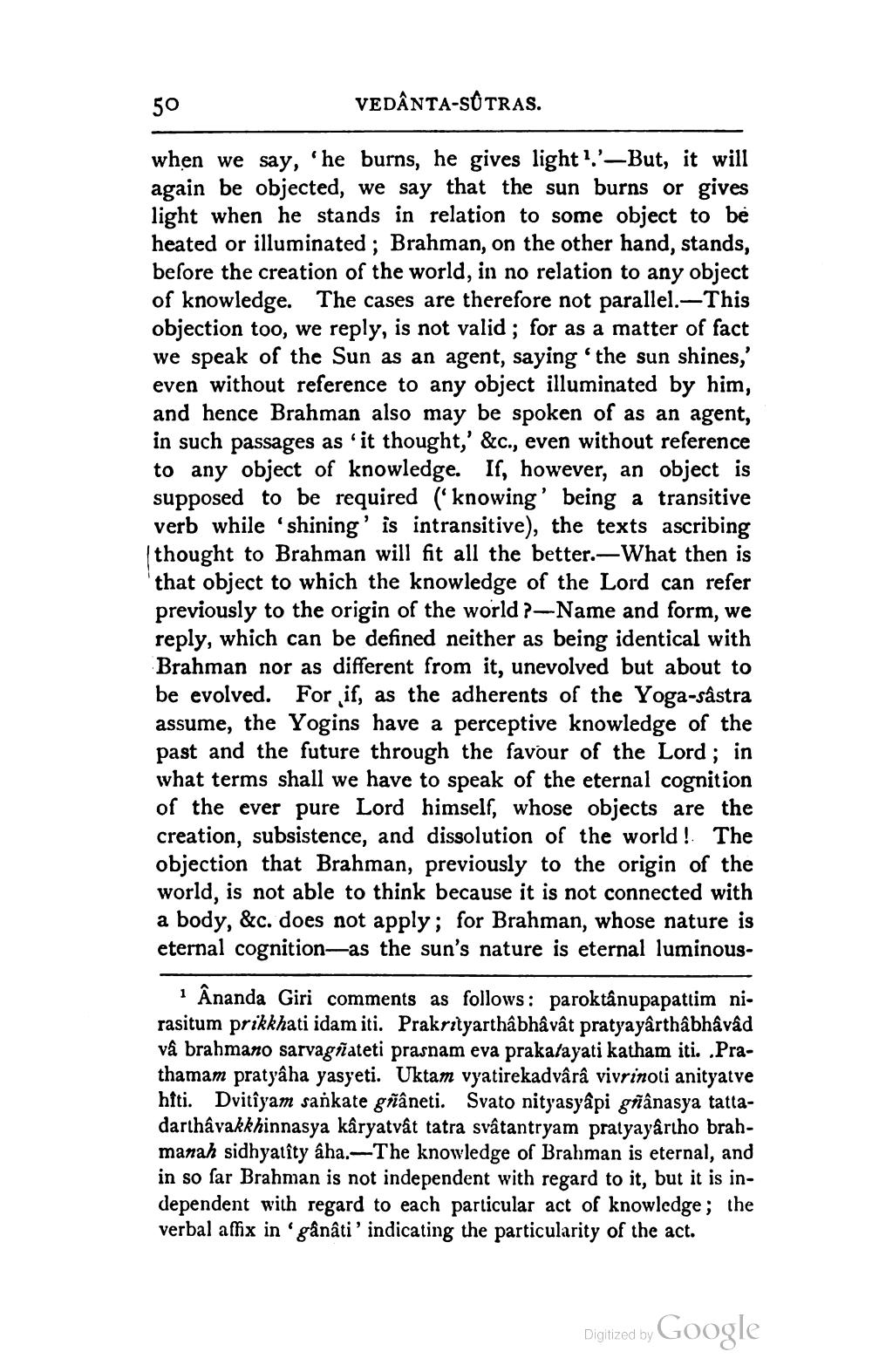________________
50
VEDÂNTA-SŪTRAS.
when we say, 'he burns, he gives light?' —But, it will again be objected, we say that the sun burns or gives light when he stands in relation to some object to be heated or illuminated; Brahman, on the other hand, stands, before the creation of the world, in no relation to any object of knowledge. The cases are therefore not parallel.—This objection too, we reply, is not valid; for as a matter of fact we speak of the Sun as an agent, saying the sun shines,' even without reference to any object illuminated by him, and hence Brahman also may be spoken of as an agent, in such passages as 'it thought,' &c., even without reference to any object of knowledge. If, however, an object is supposed to be required ('knowing' being a transitive verb while 'shining' is intransitive), the texts ascribing thought to Brahman will fit all the better.—What then is that object to which the knowledge of the Lord can refer previously to the origin of the world ?-Name and form, we reply, which can be defined neither as being identical with Brahman nor as different from it, unevolved but about to be evolved. For if, as the adherents of the Yoga-sâstra assume, the Yogins have a perceptive knowledge of the past and the future through the favour of the Lord; in what terms shall we have to speak of the eternal cognition of the ever pure Lord himself, whose objects are the creation, subsistence, and dissolution of the world! The objection that Brahman, previously to the origin of the world, is not able to think because it is not connected with a body, &c. does not apply; for Brahman, whose nature is eternal cognition—as the sun's nature is eternal luminous
i Ananda Giri comments as follows: paroktånupapattim nirasitum prikkhati idam iti. Prakrityarthâbhâvât pratyayârthâbhavad và brahmano sarvagñateti prasnam eva prakatayati katham iti. .Prathamam pratyâha yasyeti. Uktam vyatirekadvârâ vivrinoti anityatve hiti. Dvitîyam sankate gñaneti. Svato nityasyâpi gñânasya tattadarthâvakkhinnasya karyatvåt tatra svậtantryam pratyayârtho brahmanah sidhyatîty âha.-The knowledge of Brahman is eternal, and in so far Brahman is not independent with regard to it, but it is independent with regard to each particular act of knowledge; the verbal affix in 'gânâti' indicating the particularity of the act.
Digized by Google




